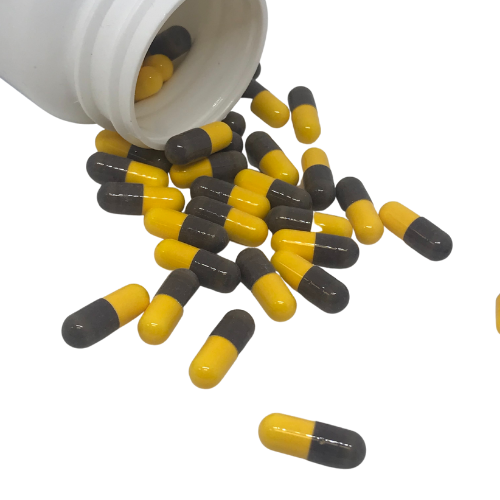Understanding the Conveniences and Uses of Fenbendazole in Vet Medicine
Fenbendazole has established itself as a crucial anthelmintic in veterinary medicine. Its capability to target numerous parasitic infections makes it an important device for vets. The drug's device interferes with essential mobile processes in bloodsuckers, leading to efficient therapy outcomes. Nevertheless, its security account differs in between species, necessitating cautious factor to consider in its use. Recognizing these dynamics can clarify fenbendazole's broader implications in vet treatment and recurring study right into its possible past standard applications
System of Action of Fenbendazole

Common Parasitical Infections Dealt With With Fenbendazole
A selection of parasitical infections are effectively treated with fenbendazole, making it a functional alternative in vet medicine. This anthelmintic agent is specifically efficient versus nematodes, consisting of roundworms and hookworms, which frequently impact dogs and cats. It is also used for the treatment of cestodes, such as tapeworms, supplying a wide range of action versus both sorts of intestinal parasites. Additionally, fenbendazole is valuable in handling infections brought on by protozoa, especially Giardia, which can cause stomach distress in pets. Its efficacy extends to dealing with specific lungworms in canines and felines, dealing with breathing health concerns connected to these bloodsuckers. On the whole, fenbendazole's capacity to target numerous parasitic species makes it an important device in veterinary technique, guaranteeing the health and health of animals impacted by these typical infections.
Security and Efficacy in Different Pet Variety
The safety and efficacy of fenbendazole vary amongst various animal species, emphasizing the relevance of species-specific factors to consider in veterinary medication. In pooches, fenbendazole is usually well-tolerated and efficient against a variety of stomach parasites, including roundworms and hookworms. For felines, however, its use is less usual and may require cautious application as a result of potential damaging responses.
In animals, such as cattle and lamb, fenbendazole shows effectiveness against numerous endoparasites, adding to boosted wellness and efficiency. The pharmacokinetics and prospective side effects can differ substantially between species, requiring cautious assessment by veterinarians.
Horses also respond positively to fenbendazole, particularly for dealing with strongyles and ascarids, though dosage and administration routes must be tailored to their unique physiology. Subsequently, recognizing these distinctions is important for maximizing therapy results and making sure pet well-being across diverse species.
Management and Dosage Standards
Correct management and dose standards are crucial for optimizing the therapeutic results of fenbendazole while reducing prospective side results. The dosage commonly varies depending on the types being dealt with, the specific problem, and the formulation of fenbendazole made use of. fenbendazole 222. For canines and felines, a typical dose is 50 mg/kg body weight, carried out once daily for three successive days, but veterinarians might adjust this based on private wellness assessments
It is very important to provide fenbendazole with food to boost absorption and decrease intestinal distress. The medication is readily available in numerous types, including granules and paste, permitting adaptable administration alternatives. Checking the animal's reaction during and after treatment is recommended to validate effectiveness and safety and security. Furthermore, veterinary support is essential to figure out the ideal period of therapy based upon the kind of parasitic infection being dealt with, ensuring excellent outcomes for the animal's health.
Future Point Of Views and Research Study on Fenbendazole
Research on fenbendazole remains to develop, concentrating on its potential applications beyond conventional antiparasitic usages. Recent research studies have discovered its efficiency in dealing with various forms of cancer, particularly in vet oncology. Preliminary data suggest that fenbendazole might prevent the growth of lump cells and improve the effects of other chemotherapeutic representatives.
Furthermore, researchers are exploring its function in managing intestinal conditions in animals, highlighting its anti-inflammatory buildings. The flexibility of fenbendazole for various types raises inquiries about its security profiles and optimal application routines in varied populations.
As rate of interest expands, there is a need for thorough medical tests to develop evidence-based guidelines for these unique applications. Future research study may additionally investigate the devices behind fenbendazole's effects, potentially leading the way for ingenious healing techniques in vet official site medication. The continuous expedition of fenbendazole could considerably enhance therapy choices for numerous veterinary conditions.

Frequently Asked Concerns
Is Fenbendazole Safe for Pregnant Animals?
The safety and security of fenbendazole for pregnant pets stays uncertain. While some researches recommend very little threat, vets normally advise caution and typically discourage its use throughout pregnancy unless the benefits clearly outweigh possible threats.
Can Fenbendazole Be Made Use Of in Animals?
Fenbendazole is commonly utilized in animals to deal with numerous parasitical infections. fenbendazole. Its efficiency against intestinal worms makes it an important anthelmintic, contributing view website to improved health and wellness and performance in pets increased for food and fiber
What Are the Adverse Effects of Fenbendazole?

The adverse effects of fenbendazole might include stomach disruptions, lethargy, and allergies. In unusual cases, more extreme reactions could take place, requiring cautious tracking and assessment with a veterinarian during therapy.
Exactly How Does Fenbendazole Contrast to Other Dewormers?
Fenbendazole uses broad-spectrum efficacy against various bloodsuckers, usually comparing favorably to various other dewormers. Its one-of-a-kind mechanism targets different life stages, making it reliable, while typically presenting a positive safety account compared to choices offered on the marketplace.
Can Fenbendazole Be Used for Treating Cancer Cells in Pet Dogs?
The possibility of fenbendazole in dealing with cancer cells in pet dogs has actually garnered rate of this page interest. Initial researches recommend it may prevent cancer cell development, but even more study is necessary to confirm its effectiveness and safety in vet oncology.